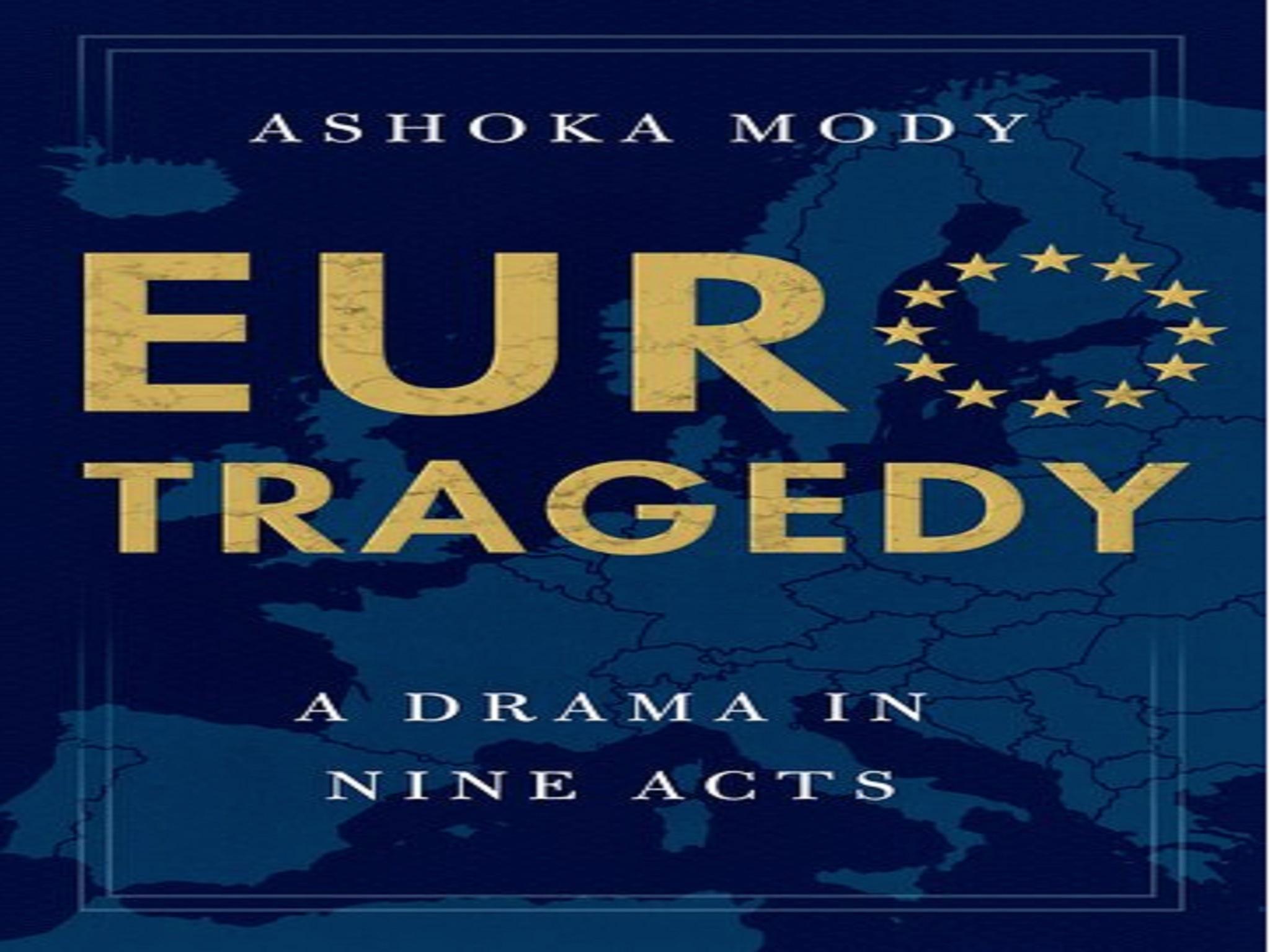Eurotragedy by Ashoka Mody, review: A supremely authoritative telling of a sad tale of hubris
Ashoka Mody, a former IMF economist and one who worked on Europe at the very height of the single currency’s existential crisis, takes a very different view from the orthodoxy on what the eurozone needs to do to survive

The orthodox view from those serious thinkers who wish the eurozone to survive is that the single currency’s road to long-term stability must pass through a process of reform summed up by the words “more Europe”.
It’s argued that some combination of jointly-guaranteed debt for all member states (or “eurobonds”), considerably larger fiscal transfers to the periphery, possibly even the creation of a pan-eurozone finance minister, will be needed to finally banish the spectre of collapse from Europe’s single currency.
This is the kind of remedy proposed in recent years by figures as diverse as the hedge fund billionaire-cum-philanthropist, George Soros, the economist Nouriel Roubini and various think tanks.
But Ashoka Mody, a former IMF economist and one who worked on Europe at the very height of the single currency’s existential crisis, takes a very different view.
In his analysis, laid out in a comprehensive and fastidiously researched new book Eurotragedy: A Drama in Nine Acts, a retreat from integration is necessary for the eurozone to survive. Reculer pour mieux sauter, one might say.
So definitely no eurobonds. Indeed, Mody recommends full fiscal responsibility for national governments, scrapping existing deficit and debt rules. He argues that Greek sovereign debt, one of the crises that came within a hair’s breadth of breaking the currency area in 2015, should simply be written off by other member states – something, Mody insists, should have been done as early as 2010 given it was manifestly un-repayable.
What about the risk of another market run on debt of member states seen as fiscally wobbly, as endured by Spain and Italy in 2012? Mody’s answer is a new debt restructuring mechanism to kick in before traders start to panic. On monetary policy, he urges a change in the European Central Bank’s mandate to include unemployment as well as inflation, bringing it into line with that of the US Federal Reserve.
Mody’s broader vision is of a new “republic of letters” in Europe, involving supercharged state and private sector investment in education and research and development in order to drive innovation, prosperity, and economic inclusion to all within the Continent.
He sees this, rather than closer political, monetary or fiscal co-ordination as the only way to rebuild the severely damaged popular legitimacy of the eurozone’s institutions.
One can be sympathetic with the intellectual capital investment objective (indeed there must surely be few who disagree with it) yet sceptical of how likely it is to be achieved on the current trajectory, or to what extent it can substitute for other institutional and structural remedies.
One of the many strengths of Mody’s book is its detailed historical narrative of how the tragedy unfolded; how a half-baked French vision of currency co-ordination was effectively forced into being by the arrogant German Chancellor Helmut Kohl; how the advice of a multitude of experts, who very warned precisely about the currency disaster that ultimately materialised in 2010, was overridden by reckless political calculation and irresponsible utopianism; how bad economics and cowardice by policymakers in the crisis made the situation worse; how a project supposed to bring the peoples of Europe closer together ended up forcing them apart.
That is the tragedy of the euro. Whether or not one agrees with Mody’s policy prescription for an ultimate happy ending, this is a supremely authoritative telling of the sad tale.
Eurotragedy: A Drama in Nine Acts is published by Oxford University Press
Subscribe to Independent Premium to bookmark this article
Want to bookmark your favourite articles and stories to read or reference later? Start your Independent Premium subscription today.

Join our commenting forum
Join thought-provoking conversations, follow other Independent readers and see their replies